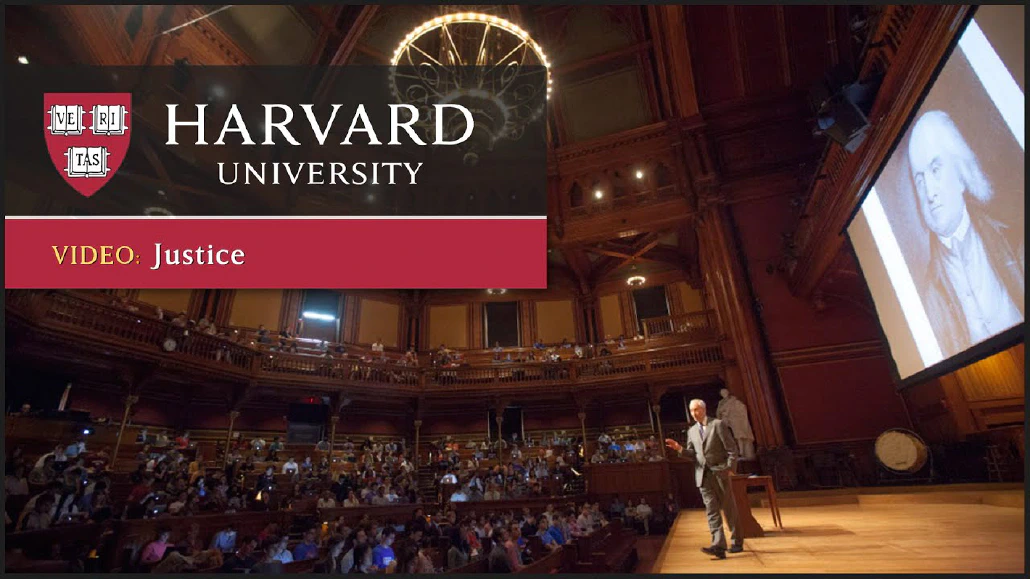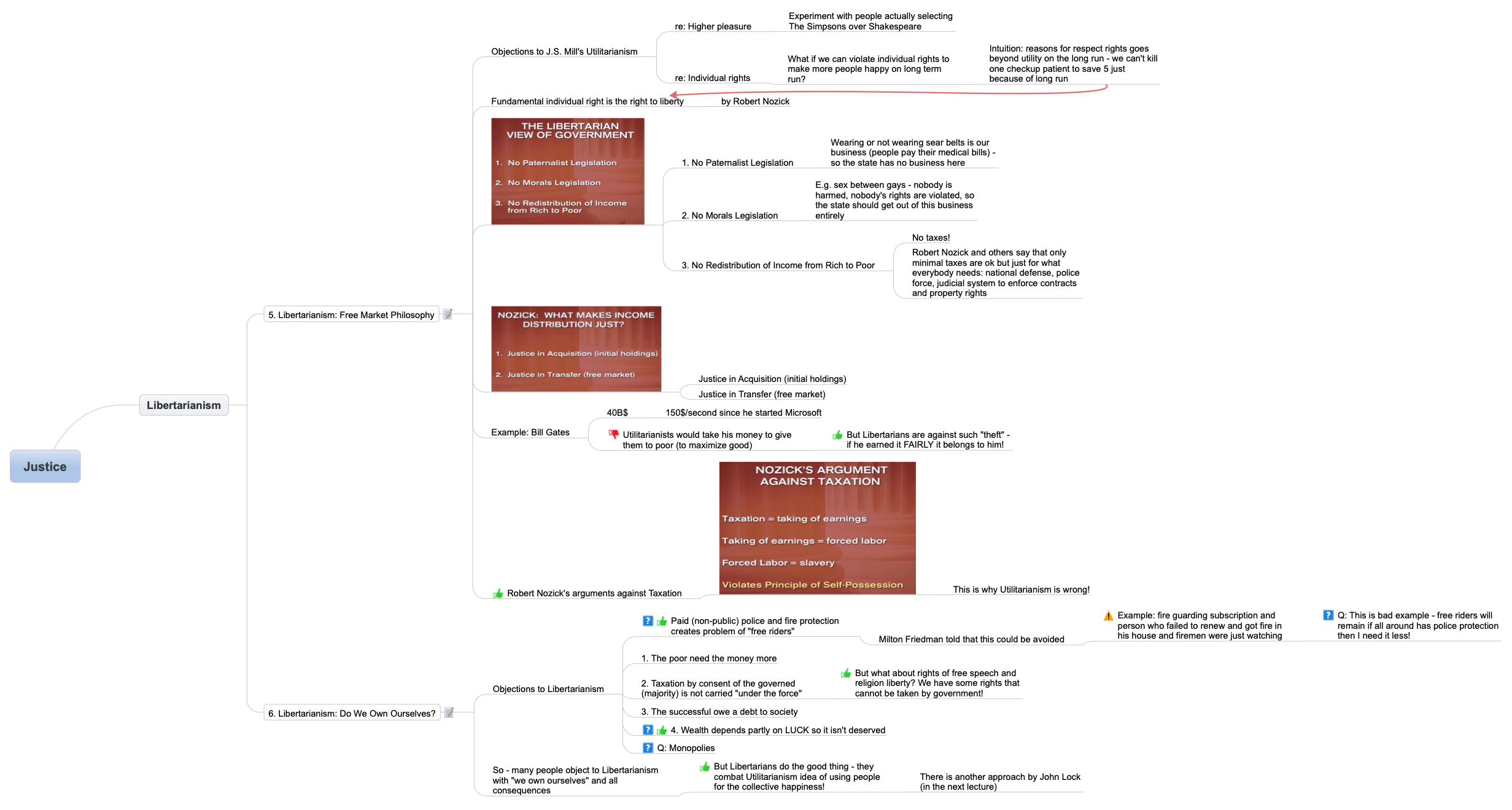Justice - 03 - Libertarianism

These “Justice” lectures are covering my favorite topic - Libertarianism.
If I need to define my political views in one word, it would be Libertarianism. HOWEVER, when I am talking with my Libertarian acquaintances, I can call myself a “Pro-states man.” ;-)
For me, it is very clear why Libertarianism is not so popular:
- most of the people who promote it are fanatics
- they try to see the world in “black and white” and close their eyes to fundamental problems.
Fundamental problems include:
- Monopolies
- Externalities and the “Free-riders” problem
These problems are also raised in lectures, but remain unanswered.
I am sharing my mind-map from the lectures as usual:

Summary of the lectures:
Lecture 5: Free Market Philosophy
The lecture discusses the concepts of utilitarianism and individual rights in philosophy. John Stuart Mill’s response to the criticism of utilitarianism and his attempt to differentiate between higher and lower pleasures are explained. The effectiveness of Mill’s ideas is tested using an experiment involving The Simpsons and Shakespeare. Mill’s defense of individual rights and justice in utilitarianism is also examined, along with objections raised against it. The lecture then introduces libertarianism as a strong theory of rights that opposes paternalistic and moral legislation. The libertarian view of government includes limited intervention, protection of individual rights, and opposition to coercion. The lecture then moves on to the debate about taxing the rich to help the poor. The example of Bill Gates, who is so wealthy that he could afford to stay in the Lincoln bedroom at the White House every night for the next 66,000 years, is used. The libertarian argument is that if the rich have earned their money fairly, it is unjust to take it away from them. Those who disagree argue that the rich have a larger obligation to give back to society because they have received more from it. The debate ultimately comes down to whether taxation for the sake of redistributing wealth is theft or a necessary evil.
Lecture 6: Do We Own Ourselves?
The lecture examines the arguments for and against income redistribution from a libertarian perspective, with a focus on individual liberty and opposition to government paternalism. This includes an exploration of the libertarian perspective on taxation, which is rooted in the idea of self-ownership. However, objections are raised against libertarianism, including the idea that the poor need the money more, taxation by consent of the governed is not coercion, and successful individuals owe a debt to society for their success. The lecture also delves into the intersection of democracy and individual rights, particularly property rights, with Alex, a libertarian, arguing that democracy should be limited to protect individual rights, including the right to private property. However, others argue that the government has a role in providing for the poorest members of society through taxation, and that property rights are not as important as other fundamental rights. The discussion also touches on the morality of stealing to feed a family, with the participants ultimately agreeing that it is wrong, despite the circumstances.
Links: